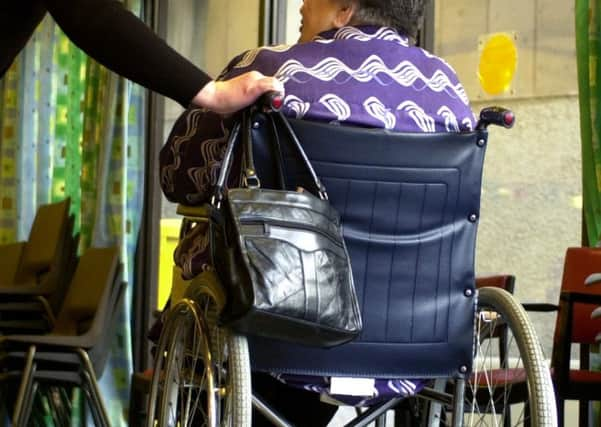A change is as good as a rest for struggling carers


Another festive season is behind us, and most of us in paid employment enjoyed anything from two days to two weeks’ rest from our normal routine thanks to our statutory right to paid holidays. In fact, the law not only confers this right but requires our employers to make sure we exercise it.
The working time regulations of 1998 give employees, among other things, a right to 5.6 weeks paid holiday each year, and the impetus behind this is the recognition that having a break is essential to maintaining good physical and mental health, and ultimately avoiding work-related stress.
Advertisement
Hide AdAdvertisement
Hide AdBut there are thousands of people in Scotland who never get a break from their usual routine, who carry on doing what is necessary, seven days a week, every week of the year, motivated not by a pay cheque but by love for and commitment to a relative or friend who needs them.
There are 759,000 unpaid carers in Scotland, of whom 27 per cent provide more than 50 hours of unpaid care a week, the lion’s share of this provided by carers aged over 50.
These statistics matter as that means that 17 per cent of our adult population work without a break for many more hours than employment law would allow with the consequent serious impact on carers’ own mental health.
In our recent Scottish Schizophrenia Survey (2014), 94 per cent of carers said that their own mental health had suffered, due to constant worry, dealing with crises and endless rounds of appointments – and helping their relative cope with everyday life.
The Scottish Government is well aware of the need for carers to have a break. The upcoming Carers Bill includes a new duty on local authorities to develop support plans with carers and to provide the support identified, including having a break, so giving carers a right to time out.
The government has also invested £14 million in short breaks for carers since 2010, some of which has come to our organisation through a fund managed by Shared Care Scotland, with which we run a national scheme providing mental health carers with direct grants to arrange their own short break. Since 2012, we have distributed £115,000 to 400 carers to have breaks.
What is most interesting is that over 50 per cent of recipients asked for and enjoyed breaks and activities with the person they care for, including special family events and days out. So we know that whereas for many carers, time for themselves is critical to restore energy and wellbeing, for many others, the fund helps restore some sense of “normal” family life, spending quality time together; mending strained relationships.
One young carer (aged 11) said after a summer of family activities: “I liked going swimming and going to the pictures with my mum and my little sister. Mum really enjoyed doing stuff with me. Mum really enjoyed the family time.”
Advertisement
Hide AdAdvertisement
Hide AdTwo sisters and their families enjoyed a weekend break together, and the carer’s feedback was: “Most of all it was good not to worry about my son as he also had company. Having company for a few days improved his conversations and interactions with people”.
We can rightly feel pleased that modest amounts of money (£350) made such a difference; but it also begs some questions: Where is the routine support for our young mum with depression and her daughters to enable them to enjoy regular family time together? Where are the meaningful day activities for our carer’s son that would give him the company of his peers?
We are delighted to be running the Time to Live Scheme for a fourth year to help carers like this woman and her son who applied in 2012: “The bottom line is if I crumble, he will cease to function. If I get away and recharge my batteries, then I can keep this thing afloat”.
However, what carers really need are good, regular community support services so that, like the rest of us, these annual treats are a welcome break and not diverting a crisis.
• Frances Simpson is chief executive of Support in Mind Scotland
SEE ALSO